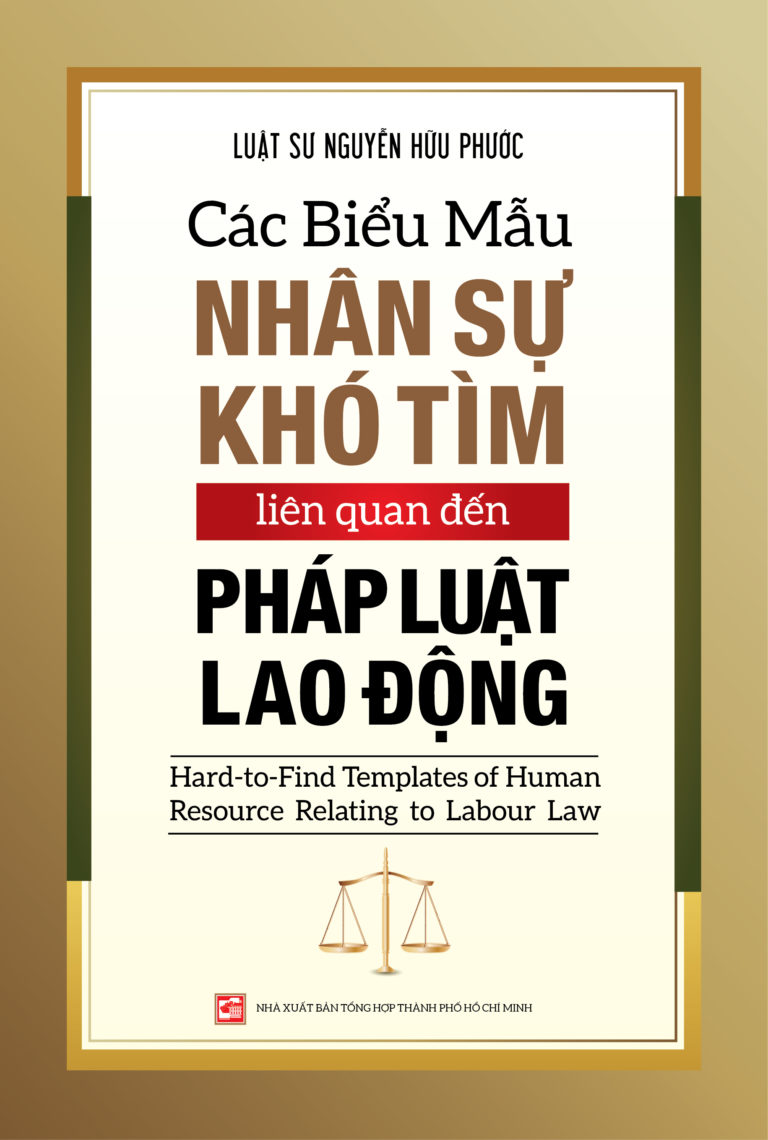Things to Know Before Starting the M&A Process
The M&A process not only requires prudence in business aspects but also requires a deep understanding of the law. In the context of rapid economic development in Vietnam, a company acquisition is a complex process that requires thorough preparation and a deep understanding of legal and related issues. The following article “Things to Know Before Starting the M&A Process” will help readers better understand what you need to know before starting the process of buying and selling a company in Vietnam.
What is the M&A process?
Current legislation in Vietnam does not set an official definition for the term “M&A”. However, according to the prevailing definition in the world, “M&A” stands for two English words: “Mergers” and “Acquisitions”. “M&A” can be understood as the method to gain control of a company or business through mergers and acquisitions.
Regarding Vietnamese law, specifically Article 201 of Law on Enterprise 2020 and Article 29.2 of Competition Law 2018, an enterprise merger occurs when one or more companies transfer their legal assets, rights, obligations, and interests to another company. In addition, according to Article 29 of the Competition Law 2018, the acquisition of a company or enterprise can be understood as a company that buys back an industry, trade, or part or all of the shares and assets of another company to controll and dominate another company.
The benefits of the M&A process include scaling up the business, increasing resources such as personnel, markets, branches, capital, and reducing risks and costs of production, management, and personnel through resource sharing between the two companies involved in the process.

Things to Know Before Starting the M&A Process
- Exploring the acquired/acquiring company
Before entering the M&A process, companies need to spend time carefully researching the company they want to buy or sell. This includes an assessment of finances, business history, organisational structure, and relationships with partners. This helps the buyer/seller determine the true value of the company and ensure that the decision made to buy and sell the company is right.
- Determining the value of the acquired company
Determining the value of the acquired company is an important part of the M&A process. There should be a full assessment of finances, as well as other factors such as markets, industries, and future prospects. This helps ensure that the value given is fair and based on clear premises.
- Finance Statement
Before entering the M&A process, it is important to scrutinise the financial statements and tax returns for the previous 3-5 year period. A careful review of financial data helps the acquirer properly assess the current financial condition while identifying potential financial trends and forecasting the future of the target company. This is important to ensure that acquisition decisions are made based on accurate and strategic information.
- Workforce
Core employees play a crucial role in the success of every business. A careful survey of this team is a necessary step to assess the quality and forecast the development direction of the business after the purchase transaction. Evaluation of employees’ expertise, teamwork, and personal development helps the acquirer ensure that they inherit a quality team and are ready to face the challenges of the market.
- The customers of the acquired company
The main purpose of acquiring another company is to expand its influence and grow in new markets. To ensure success in retaining and growing the number of customers after the transaction, capturing information about the number of existing customers, partnerships and profitability is indispensable. This information helps the acquirer build a solid foundation for its marketing and customer service strategy after signing the transaction.
- Brand
The company’s brand is not only a symbol but also an important intangible asset. The acquiring company often chooses a company with a well-known brand, which saves the time and cost of building a brand from scratch. However, brand valuation needs to be done carefully and in line with the buyer’s budget to ensure the value and soundness of the transaction.
- Legal and tax
The M&A process involves many legal and tax issues. The legal provisions related to the M&A process in Vietnam are scattered in many legal documents such as Law on Enterprises, the Law on, Competition Law, Law on Investment, Labour Code, and other legal documents. The companies need to understand sales agreements, ownership regulations, and related costs. Also, examine and evaluate tax issues related to this process to avoid unwanted issues in the future.
- Preparation of relevant documents
The M&A process requires thorough preparation of documents. The buyer/seller should ensure that all policies, insurance, and other important information are checked and clarified before proceeding. This helps avoid legal risks and ensures that both parties are operating under the same vision.
- Deciding financial strategy
One of the most important things in the M&A process is deciding on a financial strategy. The buyer/seller should clearly identify the source of funds for the sale process and consider whether to use own capital, borrow, or a combination of both.
- Identifying the competitors of the acquired/acquiring company
In the M&A process, competition can bring great benefits. If you’re an acquired company, having more interested acquiring companies can increase the value of your company, making it important to strategically consider accepting an offer. Don’t rush your decision based on just the first suggestion, but make sure to consider a variety of solutions. This helps the acquired company understand the true value of the company and optimise the benefits of the M&A process.
For the acquiring company, competition can create pressure, presenting opportunities to negotiate prices or more favorable terms. It is important not to be too sure with a first offer without considering opportunities from other partners.
- The market conditions
The market conditions play an important and undeniable role in the the M&A process. Objective factors such as market trends, government policies, economic forecasts, and political volatility, will undoubtedly have a great influence on the success of trading.
- Identifying and understanding trends in the market is important to optimise the benefits of company acquisitions. Sometimes, shifts in customer demand or industry trends can create great opportunities or potential risks. By properly monitoring and evaluating, the acquired/acquiring company can adapt and take advantage of current market conditions.
- The Government’s policies can change suddenly and make a big impact on your business strategy after the acquisition process. Assessing and forecasting fluctuations in this policy helps the acquired/acquiring company prepare and adapt flexibly.
- Reference to economic and political forecasts is important to shape strategy in a volatile context. These forecasts can provide information about growth opportunities or challenges that may occur soon, thereby helping the acquired/acquiring company make smart and rational decisions.
- In addition, a diversity of opinions from outside experts is a valuable source of information. Consultation with people with experience and deep understanding of the market helps the acquired/acquiring company has a more strategic and comprehensive view of market conditions, thereby supporting the process of making buying and selling decisions smoothly.
- Time management in the M&A process
M&A agreements rarely go as smoothly and quickly as anticipated. This process often takes longer than expected. However, having a tight plan and setting a clear schedule along with setting a target deal completion milestone can help speed up processes and minimise unwanted delays.
It is important that both parties agree and agree on a schedule from the beginning. If possible, information about your timeline should also be shared with the other party. A common schedule helps create a unified plan and keeps both parties on specific steps and deadlines.
While schedules are important, it’s also important to be flexible when needed. Adjusting the schedule based on unforeseen fluctuations in the acquisition process is important to ensure that the target is not unduly affected.
Thus, in the process of buying and selling a company, setting a plan and agreeing on a schedule not only helps speed up the process but also maintains consensus between the parties. However, flexibility is also important to adapt to fluctuations and ensure the success of trading. A combination of market understand ding and rigorous planning is key to reaching a successful company purchase and sale agreement.
The M&A process is not simply a business transaction, but also a complex process that requires deep preparation and knowledge. By mastering what you need to know before you start, you can optimise your chances of success and minimise legal risk. Ensure that you always seek professional advice to assist in this process, especially when facing complex legal and tax issues.

Above is the general content related to the Things to Know Before Starting the M&A Process that Phuoc and Partners share with readers. If you have any difficulties related to the legal field, please contact us. Phuoc & Partners is a law professional consulting firm established in Vietnam and which currently has many nearly 100 members working in offices in Ho Chi Minh City, Hanoi and Danang. Phuoc & Partners is also considered as one of the leading law firms with specialised staff in the legal field in Vietnam, whose practice areas are ranked first in the legal market such as Labour and Employment, Taxes, Mergers and Acquisitions as well as Litigation. We are confident to be one of the Law Firms providing the best legal services to clients.










